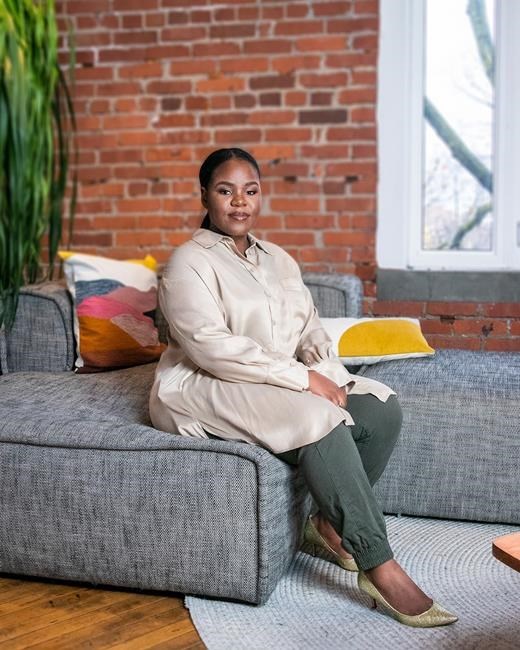In July, Zandile Chiwanza popped a bottle of champagne and called her friends to celebrate a major milestone: she had just finished paying off approximately $50,000 in debt.
Chiwanza, a 30-year-old personal finance journalist and financial wellness educator in Toronto, had owed approximately $7,000 in payday loans, $5,000 in credit card debt, $12,500 on a line of credit, $5,500 in personal loans from friends and family, and $20,000 in leftover tuition that had been sent to a collection agency.
Most of this debt had been accumulated to pay for a bachelor’s degree in journalism from Carleton University in Ottawa, which she completed in 2016. As an international student, Chiwanza was ineligible for the Ontario Student Assistance Program and had to use high-interest debt to cover her tuition and cost of living.
“Throughout school, I always worked a minimum of two jobs to make ends meet,” Chiwanza said. “After I graduated, in order to accelerate my debt payoff, I took a full-time job and two part-time jobs. This last year I was freelancing as well to make more money … it was exhausting.”
For millennials and generation Z Canadians carrying four or five figures worth of debt, paying it down can be incredibly challenging due to a lack of cash flow, said Jessica Moorhouse, CEO of MoorMoney Media Inc.
For graduates lucky enough to get a decent job out of school, hefty monthly payments and the current cost of living don’t leave much money to put towards retirement, a down payment on a home, a trip or anything else.
“You’re really constrained within this cycle of just paying your bills and debt and not really being able to see a shift in terms of your net worth,” Moorhouse said.
“It can be very easy to lose focus and lose motivation, which is why a lot of people start with student debt and then get consumer debt,” she added. “It’s kind of like going on a diet for too long. It’s not sustainable so eventually you want to kind of break that diet and go wild.”
Emergency expenses and necessities such as furniture and electronics can also lead to additional consumer debt since many people paying down educational debt don’t have extra cash lying around or an emergency fund. Moorhouse cautions young people to still prioritize an emergency fund, even if it only covers three months of expenses.
Chiwanza had previously held off on creating an emergency fund but realized during the pandemic she needed to readjust her budget to prioritize saving. “I basically put my debt journey on pause and was just making minimum payments,” she said. “At the time I was [dreading extending my debt repayment plan] but it worked out that I now have an emergency fund and I’m debt-fee and that’s way more than I had initially planned to do.”
Chiwanza’s strategy to paying down debt as quickly as possible was to treat it like a bill. “It was not an afterthought after my fixed expenses, and, at one point, 40 per cent of my income was going toward debt,” she said. Any extra income she earned through bonuses, tax returns or gifts, she put toward debt. “Cash is the greatest gift of all,” she added.
Chiwanza also prioritized paying off her most emotionally taxing debt first, which was her tuition.Monthly calls from the collection agency were causing anxiety and Carleton University wouldn’t provide her degree or transcripts without that money paid off. The inability to access her degree also prevented her from applying for permanent residency at the time.
After paying off her tuition, she adopted the debt avalanche strategy. With this method, you target the debt with the highest interest rate first, while still paying minimum payments on other debts.
Another common strategy used is the debt snowball method, where you pay your smallest debt first, and keep up with minimum payments on the rest of your debts.
Financially speaking, the debt avalanche approach makes the best sense because you’re paying down your most expensive debts first, Moorhouse said, but many people choose the debt snowball approach because it helps build motivation and momentum.
One of Chiwanza’s remaining debt repayment tactics was to consolidate her debt and reduce her credit card interest rates. She wasn’t able to reduce her interest rates until she had received permanent residency, however.
“I would say that if you have high interest debt, contact your lender to either negotiate your interest or ask for help. You need to know your options. In my experience, a financial adviser at the bank helped me get a lower interest rate. I would have never known if I didn’t ask.”
Chiwanza’s advice for other young people repaying debt is not to be too hard on yourself.
“I think there were parts of my journey where I was punishing myself for this debt because I was seeing a lot of shame being put on people in debt within the personal finance community. People were saying that if you have debt, you can’t eat at restaurants or enjoy life,” she said.
“Show yourself some compassion and build your own plan based on your goals.”
This report by The Canadian Press was first published Aug. 24, 2021.
Leah Golob, The Canadian Press




